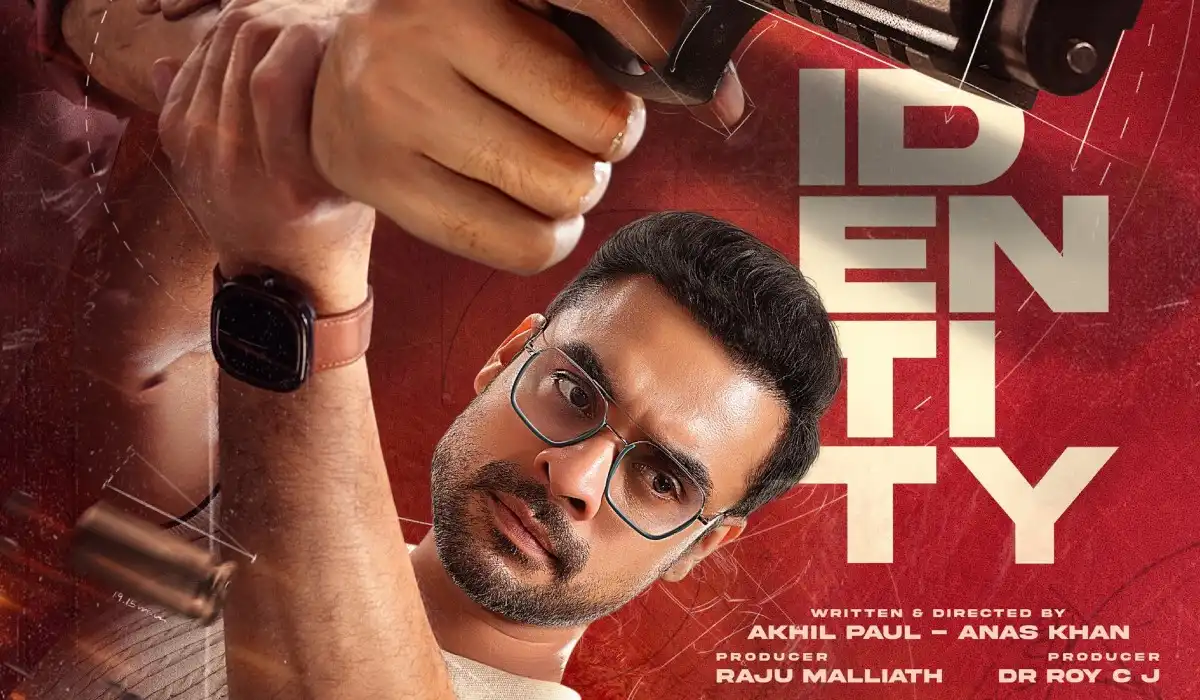The film is structured as a series of reveals that make you rethink what you think you know. The ideas are fantastic at a conceptual level, but something gets lost in the execution.
“Who is Haran Shankar?” This question comes up late in the film Identity, and it truly reflects the meaning of the title. Tovino Thomas plays Haran Shankar, and when we first meet this character, he is a boy who is arranging books in a medical library. How is he able to do something so advanced for his age? By way of an answer, we are told that Haran has obsessive personality disorder, and he is a perfectionist. And in our mind, we build a picture of him, which is consistent with the narrative for a while – and then this “identity” is shattered. Now, we wonder… “Who is Haran Shankar?” Is he a good guy or a bad guy? Sometime later, once again, Haran gets a new identity. As an aside, you should start taking a shot every time I use the word “identity” in this review because this intricate screenplay – by the directors Akhil Paul and Anas Khan – is woven around this single word.
There is a plot point about facial reconstruction surgery – and this kind of surgery has to do with changing one’s…. identity. We get a plot point about a witness protection programme – and this kind of programme has to do with concealing one’s… identity. We get a plot point around Alisha, played by Trisha. After being injured in a hit-and-run accident, she is left with a condition called face blindness. She cannot easily recall facial features of other people, which means that she cannot easily recall their… identity. We get a plot point around a cop named Allen (Vinay Rai), when we learn about his true… identity. We get a plot point about a sketch artist, and this job is about listening to a witness and drawing an image that resembles someone’s… identity. We get a plot point at a television network, where an anchor asks a source to reveal their… identity.

The screenplay is structured as a series of reveals, and almost every fifteen minutes, the film itself keeps changing its identity. We start with the young Haran, and we switch to an apparently unrelated track about a blackmailer, and then we get the Alisha angle. There is a lot of meticulous thought in here. But the direction could have used a lot more energy. At a conceptual level, Identity is fantastic. But the execution does not match up. The film needed to be leaner. For instance, when there is already so much going on, I wondered if we really needed the track of Haran’s mother getting remarried. I wondered why a weather reporter is also a crime journalist. Some of these angles could have been sacrificed to give more weight to, say, the fact that Haran is a karate instructor. This is not a throwaway detail. As we come to realise later, it helps to redefine his… identity.
Tovino Thomas is in solid form, and he plays Haran like a trauma-filled robot. He carries himself stiffly. He never smiles, and the one time he does smile, it is totally in sync with the film. I liked the fact that a rape survivor gets some kind of counseling, which helps her get on with her life – and even if Identity is another story about women as victims, at least the crimes aren’t sensationalised. But this angle is fused with another angle involving Allen, and both these tracks feel rushed. Some of the action is nicely done, but given the premise, Identity needed to be more nail-biting. One thing must be said. Akhil Paul and Anas Khan really dig diligently for interesting details. They are not lazy writer-filmmakers. This was evident in their first film Forensic, also starring Tovino Thomas. And it’s evident here, too. But this time, the dynamism in the ideas is missing in the translation to screen.


